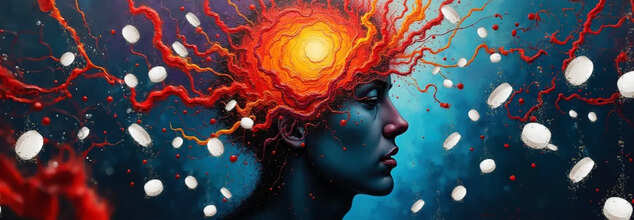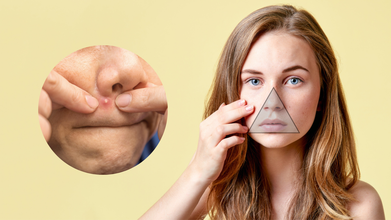- Health Conditions A-Z
- Health & Wellness
- Nutrition
- Fitness
- Health News
- Ayurveda
- Videos
- Medicine A-Z
- Parenting
Why Indians Pop Dolo (Paracetamol) Like Candy—And Why That’s a Problem

“Indians take Dolo 650 like it’s Cadbury Gems.”
That’s how a US-based gastroenterologist recently described India’s peculiar obsession with a single medicine called Dolo 650. Dolo became a household name during the COVID-19 pandemic and became the default medicine to fever, pain, or just general discomfort.
But here's the thing, Dolo is just paracetamol. And while it may be one of the most widely used over-the-counter drugs in the world, excessive and irresponsible use can cause serious harm.
What is Dolo 650?
Dolo 650 is a brand of paracetamol commonly used (and also prescribed) to treat fever and mild to moderate pain. It is manufactured by Micro Labs, a Bengaluru-based pharmaceutical company. While Dolo became synonymous with paracetamol in India—especially post-COVID—there are several other brands offering the same formulation. The drug is available in various forms: tablets, syrups, capsules, and even powder.
Why this dependence on Dolo?
There’s a strong belief among many Indians that "fever won’t go down unless I take Dolo." This perception grew during the pandemic when people hoarded the medicine and even now, Dolo continues to be the first line of defense for common ailments. But this blind faith comes with risks.
Overuse of Dolo (Paracetamol) and Its Dangers
Dr. Achintya Sharma, Max Hospital, warns against treating Dolo like a magic pill. “Dolo is just paracetamol. It’s a widely used, go-to drug, even during pregnancy. But overuse is a problem—it can affect the liver and kidneys. It should be used with caution.” He explains that taking Dolo too frequently, especially without medical consultation can lead to liver failure (especially if daily intake exceeds 4 grams), kidney issues, gastrointestinal side effects, like ulcers or GI bleeding (though rare). Paracetamol, similar to aspirin, can impact the digestive tract with prolonged or high-dose usage.
Who Should Be Extra Careful?
According to Dr. Sharma, certain groups should be extra cautious. Like children under 12 (especially with tablet form), people with pre-existing liver or kidney conditions, those with bleeding disorders or GI issues. In such cases, paracetamol should only be used after appropriate medical evaluation.
It's not just Dolo, it's a pattern. Dr. Suchismitha Rajamanya, Lead Consultant & HOD – Internal Medicine at Aster Whitefield Hospital, Bengaluru, highlights a broader concern. “Dolo has become synonymous with paracetamol. But it’s just one brand. Misuse and over-the-counter abuse of medications, even antibiotics like azithromycin are widespread.”
She adds that patients often self-medicate without understanding the root cause of their symptoms. “You can’t just pop a pill for every headache or fever. It may mask symptoms, but not treat the underlying issue.”
What About Alternatives?
Some people switch to Combiflam, a mix of paracetamol and ibuprofen, but that brings its own risks—more GI side effects, ulcers, and kidney concerns if taken over the long term. The main message is that no medicine is completely risk-free. Even commonly available drugs must be used judiciously and under proper guidance. The next time you feel under the weather, pause before popping a pill. Consult a doctor, understand what your body is telling you, and use medicines responsibly. Do not treat medicine like candy!
From COVID To Flu: Tracking New Disease Variants That Emerged In 2025

Credits: Canva
The year 2025 served as a stark reminder that COVID is no longer the only illness demanding public attention. Over the months, several diseases resurfaced or intensified, some reaching epidemic levels. In many cases, the surge was driven by new variants that altered how these illnesses spread, how severe they became, and how quickly they overwhelmed health systems.
From respiratory infections to vector-borne diseases, 2025 showed how familiar pathogens can return in unfamiliar forms. Mutations made some infections more contagious, while others blurred early symptoms, delaying diagnosis and treatment. Below, we take a look at new variants of diseases that we witnessed in 2025.
Also Read: The “Triangle of Death” on Your Face: Why You Should Never Pop a Pimple There
New Disease Variants That Emerged In 2025
COVID-19 New Variants
In 2025, fresh COVID-19 variants continued to circulate, most of them linked to Omicron sublineages. These strains spread quickly but, for many people, caused symptoms closer to a bad cold, flu, or seasonal allergies. Common symptoms included stomach issues, body pain, exhaustion, and fever.
Health authorities continued to advise testing through RAT or RT-PCR, short-term isolation, and medical care where needed. As with earlier waves, acting early made a clear difference in recovery and containment.
As per World Health Organization, some of the Covid variants that appeared in 2025 include:
XFG Variant
The XFG variant of COVID-19, also known as Stratus, surfaced in early 2025 as a recombinant strain. Recombinant variants form when two different COVID strains infect the same person and merge during mutation, a process that occurs naturally as viruses evolve. XFG drew attention because of how easily it spread and its ability to infect people despite previous infection or vaccination. Classified as a recombinant Omicron subvariant, XFG was detected widely across regions including North America, Europe, and Asia.
Also Read: 8 Red Flags That May Suggest Cancer Growth In Your Body
According to WHO-linked data from mid to late 2025:
In the United States, XFG became the leading variant, responsible for around 85 percent of reported cases by the end of September 2025.
In the United Kingdom, XFG and related sublineages accounted for a sizeable share of infections, with reports suggesting nearly 30 percent of cases in July 2025.
In India, where XFG circulated by mid-2025, early clusters were largely reported from Maharashtra, followed by Tamil Nadu, Kerala, and Gujarat. It later emerged as the dominant strain in states such as Madhya Pradesh.
The nickname “Frankenstein” was informally attached to XFG because it combines genetic material from different Omicron subvariants. Experts from institutions like the Institute Pasteur and the University of Nebraska Medical Center noted that while it spreads rapidly, it has not been linked to more severe disease.
Omicron NB.1.8.1
NB.1.8.1, informally called “Nimbus,” is a distinct Omicron lineage that was first identified in early 2025. The World Health Organization classified it as a “Variant Under Monitoring” after noticing its steady global rise, particularly across parts of Asia and North America. Although it contributed to visible spikes in case numbers, there was no strong evidence that it caused more serious illness. Vaccines continued to offer reliable protection.
By mid-2025, NB.1.8.1 had become one of the faster-spreading Omicron offshoots, driving fresh COVID waves in several countries. Despite its speed, health agencies confirmed that existing vaccines remained effective and that the variant was not linked to increased severity. The WHO officially placed it under monitoring in May 2025.
Flu New Variants
H3N2 “Subclade K” Variant
The flu strain seen during the winter months of 2025 was identified as H3N2 subclade K, a seasonal influenza A virus. Some public commentary labelled it “super flu,” though this term has no medical basis and does not suggest the virus is inherently more dangerous or resistant to treatment. A key concern was that many people had limited prior exposure to this strain, resulting in lower community immunity. Flu vaccines, however, continued to protect against severe outcomes.
Data from NHS England showed a sharp rise in flu-related hospital admissions. During the first week of December, hospitals reported an average of 2,660 flu patients per day, marking a 55 percent increase from the previous week. The number of admissions was high enough to fill more than three entire hospital trusts.
Monkeypox New Variant
Clade LB Variant
Health authorities in England detected a new mpox variant after testing a person who had recently travelled to Asia, as per BBC. Genetic sequencing revealed that the strain was recombinant, combining elements of two circulating mpox types: clade 1, which is associated with more severe illness, and clade 2, which was responsible for the 2022 global outbreak.
The UK Health Security Agency stated that it was still evaluating the implications of this strain. While most mpox cases remain mild, officials advised people who qualify for vaccination to get immunised as a precautionary step.
Chikungunya New Variant
In 2025, Chikungunya did not see the emergence of a single newly named variant. Instead, there was a renewed spread of the East, Central, and South African genotype, particularly the Indian Ocean Lineage. This lineage has developed mutations that improve its ability to spread.
According to the National Institutes of Health, certain CHIKV lineages, including the E1-226A variant, previously helped shift infections into urban settings. More recent severe cases reported in India, including outbreaks in Pune in 2024, showed signs of neurological involvement such as paralysis and darkened nasal tissue. These symptoms are thought to be linked to mutations like E1-226V or A and E2-I211T, along with improved adaptation of the virus to Aedes aegypti mosquitoes, pointing to continued viral evolution aimed at more efficient transmission.
The “Triangle of Death” on Your Face: Why You Should Never Pop a Pimple There

Credits: iStock
Pimples on skin is something we see on a day to day basis. Often, without even thinking much, we pop them. But did you know there is a 'Triangle of Death' on your face, where you should never pop a pimple?
Reacting to a video, Dr Sermed Mezher, a UK-based GP, and a health communicator who goes by @drsermedmezher on his Instagram handle says, "You should never pop pimples but it is even more important not to do it in a specific triangle of the face."
He reacts to a video where a boy shares his experience of popping a pimple on his face, which has left him in pain, and made him enable to use the side of his face with pimple. His face is now swelled.
Also Read: 8 Red Flags That May Suggest Cancer Growth In Your Body
What Is The Triangle of Death On Your Face?
Dr Mezher says that while it is named unscientifically, the area extends from the top of the nose to the upper lip. This is important because it drains the cavernous sinus. "So, we don't want bacteria to get into there," he notes.
Why Is Triangle Of Death A Dangerous Place To Pop Your Pimples?
“We naturally have bacteria on our skin, and every time we pop a pimple, we damage the skin barrier. That creates an opening for bacteria to move deeper into the skin. If those bacteria reach the cavernous sinus through the facial ‘triangle of death,’ it can cause a serious condition called cavernous sinus thrombosis," notes Dr Mezher.
He explains that this blood clot can lead to severe headaches, fever, pressure and pain behind the eyes, difficulty moving the eyes, and even eye swelling or bulging. "While it is usually treatable, prevention is far easier than cure, which is why popping pimples should be avoided."
According to Cleveland Clinic, this small segment of your face has a direct line to your brain, which is the cavernous sinus. It is a network of large veins located behind your eye sockets. Through this sinus, blood drains from your brain. This is why, any infection in this area, could a picked pimple or even a nose piercing gone wrong could impact your brain. Dermatologist Alok Vij, MD, tells Cleveland Clinic, "There is the possibility for a facial infection to become an infection that impacts the rest of your body."
Is The Triangle Of Death Really Fatal?
Well, as the name suggest, the triangle of death cannot actually kill you. Dr Vij says, "Thankfully, it is relatively unlikely. But, whenever there is a violation of the skin and interaction with bacteria, there is always a possible for infection, which can lead to greater health concerns."
In rare cases, an infection of the face can lead to septic cavernous sinus thrombosis, or a blood clot in your cavernous sinus. It could also lead to some life-threatening health issues, including:
- Brain abscess (pus that causes swelling of your brain)
- Brain infection
- Damage to your facial nerves, including paralysis of your eye muscles
- Meningitis
- Pneumonia
- Septic emboli (infected blood clots that travel through your bloodstream)
- Stroke
How To Deal With A Pimple In You Triangle Of Death?
- Apply a warm compress, use a clean cloth and apply it on the area for 10 to 15 minutes. Soak the clean cloth in warm water.
- Use a pimple patch or an overnight zit sticker that could soak up some of the drainage, in case your pimple has already opened.
- See a dermatologist.
8 Red Flags That May Suggest Cancer Growth In Your Body

Credits: iStock
In 2022, there were around 19,976,499 cancer cases diagnosed from around the world, notes the World Cancer Research Fund. Out of them, 10,311,610 were men, and 9,664,889 were women. In 2024, several reports say that there were over 19 million new global cases in that year. The cases of cancer are rising, so is there any way one can stay one step ahead of it?
While it is important to get screenings done frequently, especially if one has a family history of cancer, there could be certain red flags, one must look out for to book an appointment with oncology.
Also Read: The “Triangle of Death” on Your Face: Why You Should Never Pop a Pimple There
Here are the cancer red flag one must keep a look out for:
Persistent Fatigue
Persistent fatigue remains one of the most overlooked symptoms of oncology. This is not like a routine tiredness, this is a kind of exertion that stays despite rest, balanced meals, and time off. Data from 2022-24 shows that over 30% of early stage cancer patients reported unexplained fatigue prior to diagnosis.
Unexplained Weight Loss
Oncologists explain that over 40% of newly diagnosed gastrointestinal and lung cancer patients experienced weight loss. This could happen due to metabolic changes caused by tumors, which can alter energy absorption and consumption, often suppressing appetite and leading to a rapid loss of body fat.
When to see a doctor? If you have lost more than 5% of your body weight in under 6 to 8 weeks, it is important that you seek immediate medical attention.
Chronic Pain
If there is a pain that does not go away, it could be because of cancer. Many patients have complained of persistent pain as one of the fist symptoms of their cancers. This is particularly true for back pain, which is common in pancreatic or ovarian cancer. Bone pain too is common in metastasis, and pelvic pain is common in uterine or colorectal cancer.
Skin Changes
Not all cancers start inside the body, some also show up on the skin. These changes could be new moles, non-healing wounds, or changes in pigmentation. In fact, unusual rashes also signal changes like skin cancer.
Changes In Bowel And Bladder Habits
If you experiences changes in your bowel and bladder habits and find blood in your stool or urine, it is best to see a doctor. Colorectal, bladder and prostate cancers often start subtly. Before it becomes serious, keeping a track of your bowel and bladder habits could prevent the cancer from spreading.
Lump Or Thickening Of Body
While lumps could be benign, they are also one of earliest signs cancer. For instance, the early detection of breast cancer and testicular cancer are from lumps, which are observed while self examination. In fact, the early detection, thanks to self examination, has even increased by 22%.
Persistent Cough
While this may be a season of virus and flu, but if your cough does not go away, it may be a serious sign. If you find blood in your cough, see a doctor, take scans. If you are a smoker, you may be more prone to early stage throat cancer.
Headache That Does Not Go Away
There could be certain neurological issues, including a stubborn headache that does not go away. This may be an indication of a tumor in the brain.
If you have any of these stubborn symptoms, it is best to book a doctor's appointment and go for a screening.
Note: Health and Me is not a substitute for doctor's advice, please consult a registered doctor, if you face any of these symptoms.
© 2024 Bennett, Coleman & Company Limited

